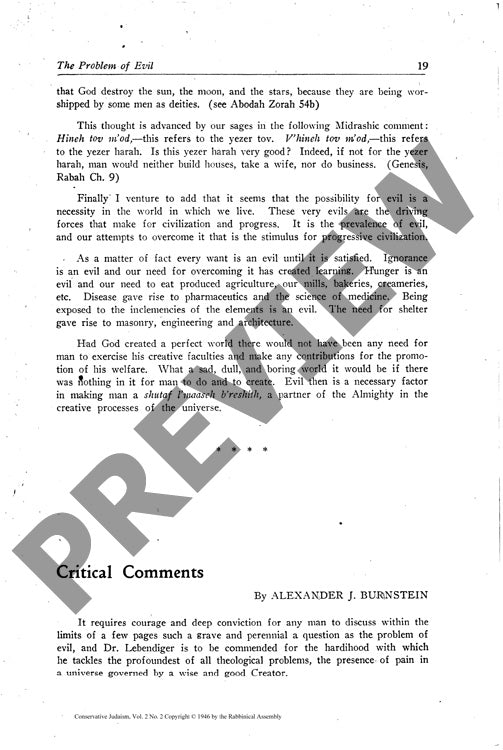Critical Comments
Couldn't load pickup availability
When theologians attempt to reconcile evil with divine governance, their solutions often raise more questions than answers. In a critical examination of Dr. Lebendiger's theological framework, two competing theories emerge: Milton Steinberg's view of evil as "social lag" versus Lebendiger's conception of evil as a necessary catalyst for human civilization. While Lebendiger correctly identifies the weaknesses in Steinberg's theory—particularly its inability to explain natural disasters and its oversimplified attribution of social evils to primitive holdovers—his own solution proves equally problematic. By arguing that nothing is inherently evil except in relation to human experience, Lebendiger's relativistic approach effectively denies evil's objective reality and fails to confront the broader suffering prevalent in nature, including what John Stuart Mill characterized as nature's inherent cruelty. The analysis reveals that both theoretical frameworks fall short of resolving the fundamental theological dilemma, suggesting the need for a more nuanced approach that synthesizes prophetic and rabbinic wisdom with modern insights to better understand the relationships between good, evil, divine goodness, and divine power.

More Information
-
Physical Description
-
Publication Information
Published 1946
ISBN
-
Publication Credits
Alexander Burnstein

